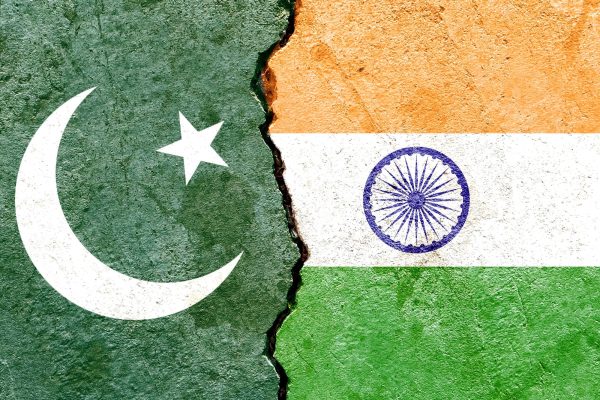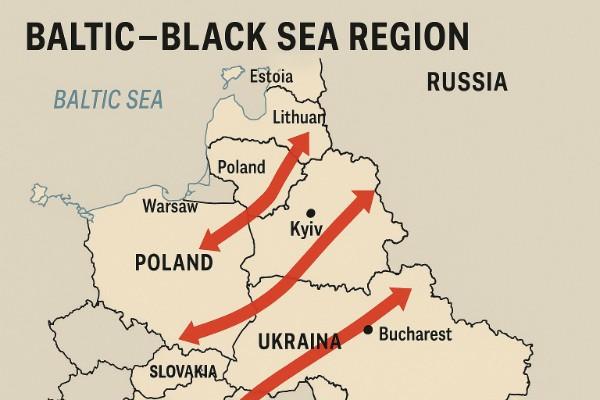Pakistan finds itself in the middle of chaos as it deals with fiscal downturn and strained ties with its neighbors. The country is currently contending with political upheavals, and heightened terrorism that led to stressed relations with Afghanistan, and Iran and the latest incidents involving Chinese casualties have displeased China. Thus, caught in a multiverse of predicaments, Pakistan is in dire need of normalizing relations with its neighbors and essentially with its immediate neighbor, India.
In addressing the multifaceted challenges, Pakistan must necessarily undertake reassessment or reconsideration of its domestic and foreign policies. However, the prime focus among its concerns should be the preservation of its economy from rupturing under the piles of debts and drowning into the swamp of bankruptcy.
The considerable toll extracted by the inter-regional commerce of Pakistan, largely a consequence of its strained relations with neighboring states, is particularly detrimental. Pakistan conducts a significant portion of its trade with distant nations, experiencing substantial transport costs and heavy taxes in the process. An alternative approach, focusing on intra-regional trade within South Asia, particularly with India, holds promise for considerable benefits. This is primarily due to the potential reduction in transport expenses and taxes, thereby fostering a more conducive economic environment. However, the Indo-Pak indirect commerce is still being carried out at the cost of huge taxes. The business community wants to trade with India directly to save costs, Foreign Minister of Pakistan, Dar said.
As Pakistan and India are both densely populated nations with considerable market opportunities, resuming economic ties can help businesses on both sides by opening new markets and boosting economic growth. Both, Pakistan and India have the industries that might effectively complement one another. Both the nations can be benefitted via Collaborations in industries including technology, industry, and agriculture. A strategy to strengthen economic relations may also eliminate political differences and hostilities by encouraging economic interdependence.
Pakistan and India had been engaged in bilateral trade with the two-way commerce amounting to about $2 billion encompassing exchange of various commodities, including sugar, cotton, and wheat. The economic ties were disrupted when Pakistan suspended trade and diplomatic relations with India in August 2019 following New Delhi revocation of the semi-autonomous status of Jammu Kashmir. Preceding this event, in response to the Pulwama Attack on an Indian paramilitary police convoy in Kashmir, India withdrew the most favored nation (MFN) status for Pakistan and implemented import hefty tariffs. The persistent Indo-Pak hostility hampers its economic growth and stability, diverting resources from vital sectors like infrastructure, education, and healthcare owing to maintenance of balance of power in the region against India.
The recent general elections in Pakistan saw Shehbaz Sharif assuming the role of Prime Minister. There is optimism for a potential reduction in tensions between the two rival nations as PMLN has historically favored improved relations with India, evident in instances like the Lahore Declaration and Prime Minister Modi’s invitation to Mian Nawaz Sharif’s swearing-in ceremony in 2014. The government also indicates a willingness to adopt a more accommodating approach towards India. Prime Minister Shehbaz Sharif has articulated a desire to improve relations, while Defense Minister Khawaja Asif remains hopeful for better ties post-India elections.
Moreover, India’s increasingly normalized relations and interest in conducting trade with Afghanistan require Pakistan to open trade routes. This presents different challenges and at the same time an opportunity for Pakistan to maximize gains by imposing conditions of facilitating avenues in proliferating its economy or trade relations with India
Despite there being a few signs of a potential restart in 2019, Pakistan’s government reversed the decision due to severe criticism. Public opinion in both countries also plays a crucial role. Governments would need to measure and manage public sentiment and create a political narrative regarding economic ties with the neighboring country which for successive years, the political leadership of both countries has used for domestic political discourse building.
In an article published on February 7, 2024, from India’s perspective, it was stated that Pakistan finds itself entangled in a complex web of terrorism, much of which it unintentionally nurtured. While the Indian government acknowledged Pakistan’s cessation of trade via land borders, trade persists through sea and air routes. India desires trade with Central Asian nations but requires Pakistan’s cooperation for transit due to geographical constraints. It was emphasized that India did not initiate the halt in trade with Pakistan; rather, it was Pakistan’s decision. India seeks peaceful relations with Pakistan but underscores the necessity for Pakistan to cease supporting terrorism for this to materialize.
The aforementioned statements by Indian officials suggest that for Pakistan to normalize relations with India effectively, it must address terrorism-related concerns earnestly. Notably, China’s discontent following terrorist incidents in Pakistan underscores the urgency for Pakistan to tackle these issues. To facilitate normalized relations and bolster trade, Pakistan must address terrorist and separatist concerns. This entails engaging in dialogue with separatist groups and violent non-state actors, seeking potential negotiations to rescue its struggling economy.
In a nutshell, the complex dynamics between Pakistan and India underscore the urgent need for diplomatic reassessment and proactive measures to address longstanding hostility, particularly terrorism. The recent signals of willingness to engage in dialogue and enhance trade relations offer a glimmer of hope for economic prosperity and regional stability. However, sustained efforts are required to overcome historical resentments, foster trust, and prioritize economic cooperation over political differences. By prioritizing dialogue, confidence-building measures, and addressing core issues, both nations can pave the way for a more peaceful and prosperous future in the region.

Table of Contents
ToggleFareha Jamal
Fareha Jamal is an undergraduate student of International Relations at the National Defence University, Islamabad. Her areas of interest include South Asian politics, human rights, conflict & strategic studies.













